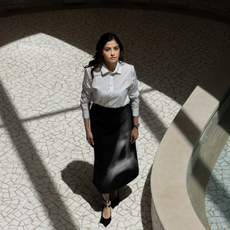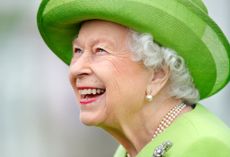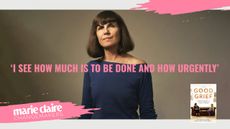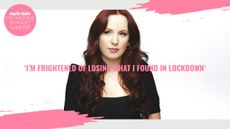Bite-sized tips to help stop snacking during lockdown
Of course this period calls for a little indulgence, but here are some tips to limit snacking, just in case...

Of course this period calls for a little indulgence, but here are some tips to limit snacking, just in case...
At this point in time, nothing in our lives is usual. What formerly counted as fun - restaurant meals, socialising with friends and buzzing exercise classes - has been stripped away. Now, we have a lot of fun on snacking. Why? Well, to get scientific, the very act of eating causes the release of two hormones: dopamine and endorphin . Dopamine is the pleasure hormone that we will feel before eating, and endorphin, that of well-being that we will feel after eating.
But all this snacking, be it for pleasure or because you're stressed, combined with closed gym doors, can result in unwanted weight gain and an unhealthy body and mind. A recently published 'Working at Home Wellbeing Survey', evaluating the first two weeks of quarantine, found that 33 per cent of 500 people surveyed were eating less healthily. Yikes.
We tapped up the experts at renowned health retreat Vivamayr, to ask for tips to avoid, prevent, limit or entirely stop snacking, according to the wellness principles the clinic values. This is what they say:
Track your eating habits and start a food journal
The first step to change a habit is becoming aware of what we do on a regular basis. Keeping a food journal for a couple of days, a week or even a month, can be a powerful insight about our eating habits and associated emotions and if, when, how much and what we snack on. This can be as simple as writing everything down into a journal, setting up a spreadsheet or using an app to track what and when you eat and which emotions are coming up, as one will influence the other. To know thyself is the first step to self-mastery.

Start your day with a nutritious breakfast between 7 and 9 am and follow a healthy circadian rhythm throughout the day
Humans have evolved by being in tune with the rhythms of nature and the seasons. Loss of our circadian rhythm has been linked with an increased risk of chronic diseases including obesity, metabolic syndrome, cardiovascular disease as well as cancer.
Both traditional Eastern as well as traditional European medicine systems agree that the optimum time for breakfast (or breaking our overnight fast) correlates with the time when the stomach meridian is most active which is between 7 and 9 am. This is the time of maximum digestive performance; the later in the day the more does the digestive capacity decline.
Marie Claire Newsletter
Celebrity news, beauty, fashion advice, and fascinating features, delivered straight to your inbox!
Your evening meal should be the lightest and most easily digestible meal of the day, be eaten as early as possible in the evening and at least three hours before bedtime, ideally before 7 pm. Live more in alignment with the rhythms of nature, get up early and cultivate healthy sleep habits by going to bed before 11 pm.
Eat slowly and chew your food well
Remember, your stomach has no teeth and any food which is has not been sufficiently pre-digested by the enzymes in the mouth ends up stressing your digestive system unnecessarily. Vivamayr recommends chewing every single bite at least 30 times before swallowing to initiate the release of enzymes which break down carbohydrates in the mouth – so eat your liquids and drink your solids, and taking at least 30 minutes per meal, if not longer, to get all the benefit.
Establish regular meal times
By doing this, you are far less likely to start snacking. Our body needs sufficient time to digest its food to work efficiently and extract all required nutrients. The minimum time required between meals for your digestive system to do its work well is at least four hours between meals. If we start snacking between meals it can cause ongoing stress to our digestive organs and even insulin resistance. The digestive system and hormones simply become overwhelmed by the lack of rest and recovery.
Imagine if you are constantly on the go without sufficient time to recharge your batteries, sooner or later you will become increasingly tired and unable to complete your work. The same applies for your digestive system. Ignoring this principle can be as harmful as eating the wrong type of food.
Try out intermittent fasting
The most common form of intermittent fasting is the 16/8 principle, which is to fast for 16 hours and eat only during the remaining 8 hours of the day. Vivamayr differs from most intermittent fasting recommendations, as the detox centre favours dinner cancelling instead of skipping breakfast, as our digestive performance decreases throughout the day and is less efficient in the evening.
When we fast in the evening we give our digestive organs a rest to recover their optimum energy for the next day. Positive 'side effects' of intermittent fasting are cellular rejuvenation, improved gene repair and immune system regulation, enhanced hormonal regulation and insulin sensitivity, reduced risk of systemic inflammation, cardiovascular disease, type 2 diabetes and Alzheimer’s disease.
If you are not underweight, recovering from certain medical conditions or surgery it should be safe for you to embrace intermittent fasting, either on a regular basis or at least a few times a week - but please research this and check intermittent fasting is a safe option for you.
Stay well hydrated
We often don’t realise that what we perceive as hunger is actually a signal that we are dehydrated, rather than deprived of fuel. Try it out for yourself the next time you feel like snacking: drink a glass of water, either plain or flavoured with a slice of fresh organic lemon or lime. Or, take lightly brewed herbal tea. When you are well hydrated your metabolism and elimination also work more efficiently and your skin will become plumper and more radiant. Water is one of the cheapest anti-aging remedies!

Be prepared
Set yourself up for success by knowing your 'triggers'. The best way to resist the temptation to start snacking is to plan your meals ahead. Pretend you are going to work, prepare your lunch and all food for the day ahead, resist the urge to check on the fridge, especially if it is close to the makeshift desk or kitchen table.
Also, detox your pantry and kitchen cupboards and stack up on healthy and nutritious food. Remove the temptation and stick to the good intentions.
Move your body regularly
Our increasingly sedentary lifestyle has had a massive impact on our general health. Our body was designed to move, to be active and certainly never designed to sit in front of a computer for hours or most the day. As we spend more and more time slumped in front of an electronic gadget, our lymphatic system becomes stagnant and waste cannot be cleared from our body.
Also, if we don't move we create more stress in our body. And with increasing stress comes an increasing desire to snack. It can be a vicious circle unless we become proactive and build regular movement into our day. Set yourself a timer for a 5-10 minute movement break for every hour you work. Your body will thank you and your energy and productivity will increase.
Finally, find what you love to do and do it daily; from yoga to dancing or running. Do whatever brings you joy.

Breathe
Breathing problems can range from breathing through your mouth instead of your nose, breathing faster, more irregularly or holding your breath especially when stressed. Train to gradually reduce your breathing frequency to 3 or 4 times per minute and focus on expanding your belly when breathing in and contracting your belly on the exhale.
Start a mindfulness and meditation practice
It is helpful to build a solid relaxation, mindfulness and meditation practice to help you break your snacking habit and to promote calm for your stressed out brain. Once we are more relaxed our digestive system can support us optimally and nutrients can be more readily absorbed.
Olivia – who rebranded as Liv a few years ago – is a freelance digital writer at Marie Claire UK. She recently swapped guaranteed sunshine and a tax-free salary in Dubai for London’s constant cloud and overpriced public transport. During her time in the Middle East, Olivia worked for international titles including Cosmopolitan, HELLO! and Grazia. She transitioned from celebrity weekly magazine new! in London, where she worked as the publication’s Fitness & Food editor. Unsurprisingly, she likes fitness and food, and also enjoys hoarding beauty products and recycling.
-
 I tried the sports bra that athletes will wear at the Paris Olympics - and it’s become my new go-to for weightlifting
I tried the sports bra that athletes will wear at the Paris Olympics - and it’s become my new go-to for weightliftingKeep scrolling for my honest thoughts.
By Abbi Henderson
-
 Yusra Mardini on why the Refugee Olympic Team needs our support
Yusra Mardini on why the Refugee Olympic Team needs our supportFrom Refugee to Olympian.
By Galia Loupan
-
 This is the Rolls Royce of manicures—and every beauty insider swears by it for a perfect, glossy finish
This is the Rolls Royce of manicures—and every beauty insider swears by it for a perfect, glossy finishIt really is *that* good
By Lucy Abbersteen
-
 "I'm a Black barrister working in a broken justice system"
"I'm a Black barrister working in a broken justice system"Alexandra Wilson is a 26-year-old barrister speaking out about sexism, racism and class inequality at the very heart of the legal system. She shares her disturbing experiences, and why activism will make a difference.
By Alexandra Wilson
-
 Feeling sad this week? Learn about the 5 steps of grief, plus how to avoid it consuming you
Feeling sad this week? Learn about the 5 steps of grief, plus how to avoid it consuming youAs the nation mourns Her Majesty The Queen.
By Ally Head
-
 Pride events: 7 IRL and virtual celebrations to add to your calendar for 2021
Pride events: 7 IRL and virtual celebrations to add to your calendar for 2021Ready to celebrate?
By Rosie Grant
-
 Coronavirus versus cold symptoms: How to know whether you've got COVID 19 or a common cold
Coronavirus versus cold symptoms: How to know whether you've got COVID 19 or a common coldThis is important. Read guidance from the experts now.
By Ally Head
-
 How COVID-19 made us forget our morals on plastic
How COVID-19 made us forget our morals on plasticPre-pandemic, we cared about our habits of plastic use. Lockdown changed all that - but it's not too late to continue the fight
By Olivia Adams
-
 Catherine Mayer on women's rights: 'I see how much is to be done and how urgently'
Catherine Mayer on women's rights: 'I see how much is to be done and how urgently'Co-founder of the Women's Equality Party, Catherine Mayer, was married to influential musician Andy Gill until his death in Feb 2020. This International Women's Day, Mayer shares with affecting honesty how grief adds clarity to her life-affirming activism
By Maria Coole
-
 Tanya Burr shares her top 6 resources for educating yourself - and growing - this IWD
Tanya Burr shares her top 6 resources for educating yourself - and growing - this IWDThe theme of this International Women's Day is Choose to Change - let Tanya help you become a change-maker with her top resources.
By Ally Head
-
 Catherine Bohart: 'I’m frightened of losing what I found in lockdown'
Catherine Bohart: 'I’m frightened of losing what I found in lockdown'Award-winning writer and comedian Catherine Bohart shares what her own lockdown mental health journey helped her discover
By Sophie Goddard